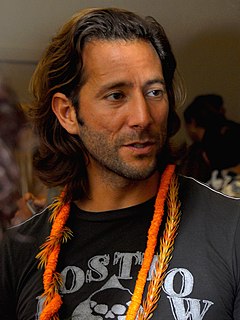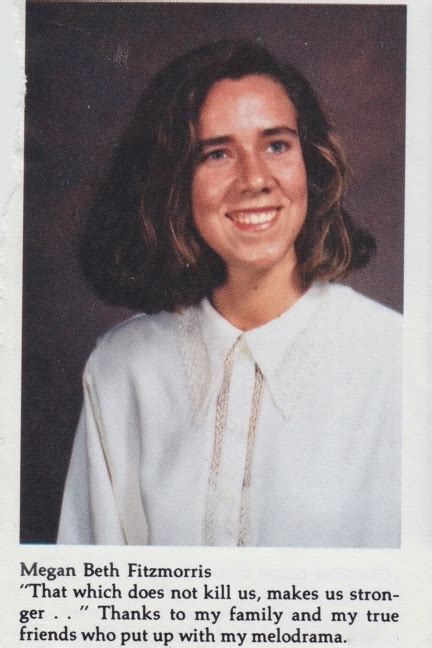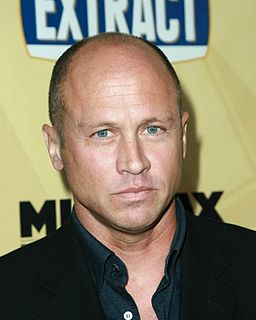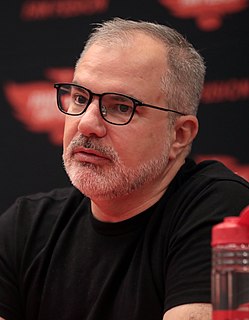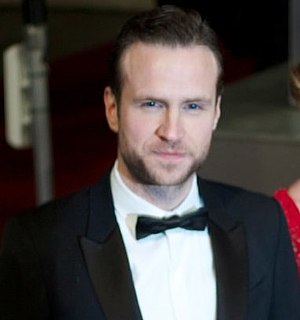A Quote by Candis Cayne
I knew I could never be an actor as a man. It just doesn't work, you know? And so when I was doing drag, I realized I could do that kind of stuff, and then when I was transitioning, I kind of gave up on the whole thing because I didn't think that this time would ever come, you know?
Related Quotes
I got the sense that he was the kind of person who couldn't hold anger for more than a few minutes, because it just wasn't in him. It could never grow into resentment or bitterness, and I knew then that he was the kind of man who would be married forever. And I decided then and there that I should be the one to marry him.
The first time I ever performed spoken word poetry in front of a big crowd, it totally failed. It ended, people barely clapped...in retrospect the poem was terrible. And for a while I thought this was something I would never do again. And then I realized that, in my 17-year-old head, that was the worst it could have been. And it wasn't that bad - [because] from there, it could only get better. And I think that failure kind of freed me up to explore and not be afraid of failing again.
I don't know if this is the kind of retrospective analysis that people are fond of applying to their work or actions, but it feels like I knew I was going to be famous and I knew that an element of that would be traumatic, so that if I could make myself something big and otherworldly, it would be a kind of defence.
When you get many opportunities early on, and you have people who have been working for a while counting on you, you have to at least pretend that you know what you're doing. So any actor that's pretending, you start to develop philosophies. Without years and years of experience, you kind of go with an attitude that you know what you're doing. And so I think right around that time, I was kind of at the peak of rigidly thinking that I knew how to work in film in a way that I wanted to. Cameron was extremely patient and generous with me.
I came out to my parents as gay, and then I realized, you know, four or five years later, that I wasn't really happy, no relationships were working, and there was something missing in my life, and you know, I was doing drag, performing and stuff, and I realized through that arc that I was much happier doing that.
My generation didn`t face the kind of urgent, pressing issues that my parents did, who fought through a war and a Depression and know what suffering is. That`s why Bob Dole had a tough time with this electorate. He was an old-fashioned curmudgeon who knew about sacrifice, and we didn`t know if we could live up to his standards. But we knew we could live up to Bill Clinton`s. He`s more like one of us.
I think I was scared of the drag thing, as a lot of gay boys are. It's sort of knocked out of you in junior high. I wouldn't find guys who were very feminine attractive. Then, doing 'Hedwig,' I got to be man and woman, really butch and really femme at the same time, and I realized, this is kind of the ideal.
I call it "being interrupted by success." We had done The Soft Bulletin, which came out in 1999, and we knew we that were gonna make another record before too long. But in between this, we were still in this mode of kind of just - not re-creating what we could be, but kind of doing different things. For the longest time in the Flaming Lips we were like, "Make a record, go on tour. Come back, make another record," and you know, I think, frankly, we were kind of like, "There's more to life than just recording records and going on tour."
You do stuff that gets a reaction and you think 'that's a winner' and then it never sees the light of day. But the thing with improvisation is that 90% of what you come up with won't be used and for good reason. But you keep going for the occasional gem that you might come up with. You do a scene and a lot of the time. We wouldn't cut. So, you come up with something that might be funny and then you go, 'alright, what else'? So, you kind of throw stuff against the wall and see what happens. But you've got to be prepared to make a fool of yourself.
I've always known that I wanted to be an actor. My family kind of was a theatrically inclined family. My father came to New York when he was a young man to be an actor and he, over a course, was in a couple Broadway musicals. I grew up in family where theater was always part of the vocabulary. By the time I was a teenager I was just totally obsessed, and it was the only thing I could imagine myself doing.


